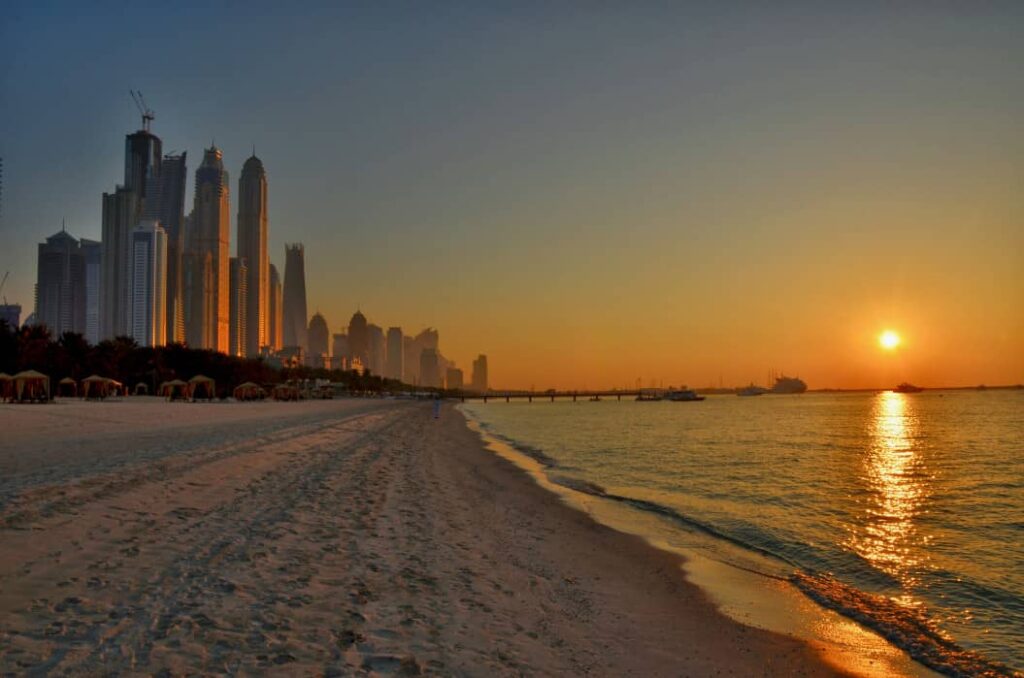Dubai Economy on Sunday declared that it provided nine percent more new licenses in January as the investors reposted full support in the emirate following restarting of trade activities after a stop because of the Covid-19 pandemic.
The Business Registration and Licensing (BRL) sector of Dubai Economy provided 4,567 new licenses in January 2021, showing a rise of about 9 percent from the 4,172 new licenses provided in January 2020.
In the new licenses provided in January 2021, 58 percent were professional, then came commercial providing 40 percent, and the rest were categorized among tourism and industrial activities.
Shailesh Dash, financier, and entrepreneur, said the Dubai economy has again proved its flexibility rather than the challenging environment across the globe in the wake of the Covid-19 pandemic.
“The latest Purchasing Managers’ Index (PMI) of the UAE showed that business activity has stabilized during the second half of 2020 as the index recorded average readings of 50.4 and 50.1 in third and fourth quarters, respectively. Positive economic indicators show that that the economy is gradually returning to a growth track and will sustain an upward trend this year,” Dash told Khaleej Times on Sunday.
“Dubai is a commercial hub and it will be a major beneficiary when the UAE economy moves into a positive trajectory,” he said.
With respect to the main areas, Deira considered for the largest share (2,425) of the new licenses then comes Bur Dubai (2,135) and Hatta (7). The numbers show Dubai’s flexibility as well as the emirate’s economic competitiveness, containing its ability to provide businesses high-growth chances in several economic sectors.
As per the statements of legal forms of the licenses provided in January 2021, Sole Establishments counted for 42 percent of the total, then comes Limited Liability companies 32 percent, and Civil Works at 22 percent. The remaining legal forms contain; One-Person Limited Liability Companies; Branches of companies based in other Emirates; Branches of Free Zone Companies; Branches of Foreign Companies; and Branches of Gulf companies.
The tasks of the new licenses provided during January 2021 contain Other professional services; Contracting and related matters, Building maintenance, guards and cleaning; learning services; Ready-made garments; Information technology; Other business activities; Electronics group; Food trade; Restaurants and cafes.
Nazim Munshi, director at Enterprise House, said January 2020 was a period that was not impacted by the Covid-19 pandemic.
“A nine percent increase in issued license in January 2021 compared to the same month of last year shows that ‘Dubai means business’. The incessant efforts by the Dubai and UAE government in fighting the Covid crisis, subsidy support for SME, streamlining and easy issue of new licenses, persistent vaccination drive, etc, has led the investors and business houses to believe and trust in the bright future of UAE,” Munshi told Khaleej Times on Sunday.
“With the announcement of new flexible laws on UAE passports for investors, 100% foreign ownership for foreigners in the mainland, long term visas, and other initiatives on peace the UAE is expected to be unbeatable in the region for attracting new investments into the country. 2021 is expected to see good growth and shall boost confidence for residents and nationals alike,” she added.
Dubai Economy attempts to provide solutions that put up an increasing facility of doing business in the emirate and enlarging investment and growth, that in turn maintain a long-lasting economy. The rise in new licenses also provides the private sector’s increasing role as a key partner in Dubai’s economic development along with the emirate’s ongoing efforts to serve a supportive environment and infrastructure for local and international businesses.
The Business Map, www.dubaibusinessmap.ae, looks to show the economic realities in Dubai by providing important data on each license category continuing their numbers and distribution along with the trends on a monthly basis. It also contains an interactive guide providing the geographic distribution and concentration of major business activities and the value of urban growth in regards to lengthening neighborhoods and business licenses.
